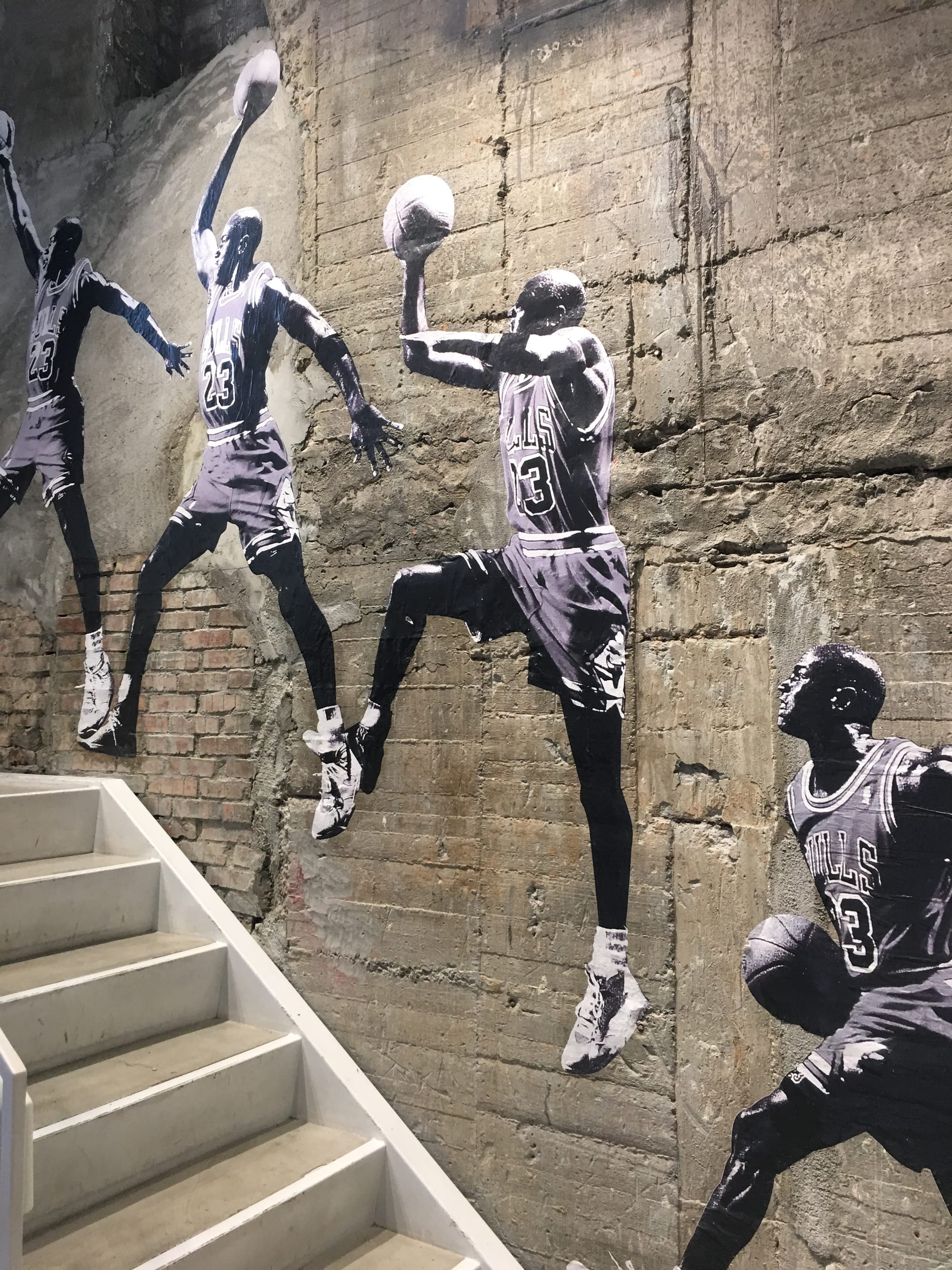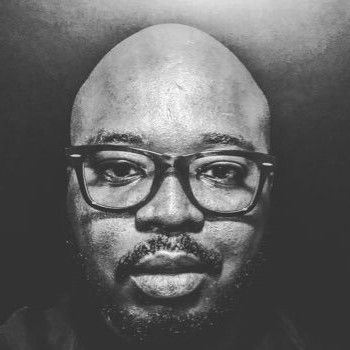It's that time of the year again--the time when people sit and reflect about the 365 days they spent orbiting the sun. The time of year when people reset, and make new commitments for the incoming year, rousing new convictions and pronouncing new resolutions. This is not that.
This year has been a year of questions for me. Most of these have been questions I've been asking for years and will likely keep exploring. For example, what builds a long lasting organisation? Others have been more narrow; what builds a successful career; how does one turn early success into long term success? How does one build a successful state or polity?
In searching for the answers, I've found that ultimately the key question is this--what does it take to be successful and to sustain that success over the course of one's life extending it well beyond ones lifetime to several generations of people or citizens? Unsurprisingly I've come to the conclusion that the answer is not novel at all. There are a great many books written about it.
Here's where I'm at with the answers:
1) Self Knowledge
You shouldn't over estimate your ability, you may end up starting things you can't finish. Likewise you shouldn't underestimate yourself; you may operate below your potential. Ultimately the only way to know how good you are is to test yourself in the arena; competing against others and letting the results tell you. Your ability to learn, and improve will guide you in this regard. If your game improves as you play, your peer set changes to reflect your improving ability. Your ability to remain competitive as the quality of the game becomes significantly more difficult tells you where you sit. In the end you have to play games you can actually compete in and stand a real shot at winning consistently. A mid tier go-kart racer in their 10th year being average can not a formula 1 racer make. Accepting this helps build a foundation for mental clarity.

2) Focus
You have to choose a game to be good at and stick with it. How many world class athletes do you see competing across multiple professional sports with great success? They typically pick one and work really hard to be good at it. The same is true in business or even nation building. Businesses tend to be good at very narrow ranges of things. They pick an industry and seek to excel at it. Sometimes they may have a diversity of products or even industrial sectors; but there is usually a set of core competencies that harmonize these otherwise disparate activities and that's the common core that they practice excellence in.
3) Discipline
It doesn't matter how much natural talent a person has. Becoming exceptional requires a lot of work. Artisans have to spend a lot of time building experience and working under a master as an apprentice. Athletes need to practice, they need to exercise, they need to study their opponents and understand the game they play at a first principles level. Inability to practice discipline leads to inconsistent performance. It results in lifestyle decisions that might impair ability to operate at the highest levels of performance or maybe even disqualify a player from a game. Personal discipline cultivates consistency and avoids hazardous vices that would compromise ability to play ones game. Personal discipline also enables one to achieve a level of mastery that allows them to practice discipleship; teaching others how to play at a high level--and gives one the moral ground to engage in disciplinary actions eg enforcing order with the goal of sustaining a standard of play. This sort of discipline and enforcement of standards creates a culture of compliance motivated by high performance; with winning as the reward. Discipline requires one to be unyielding on the outcome, winning; and therefore unyielding on the methods that achieve the outcome. You play by the rules because you respect the game. You don't yield on allowed practices that (a) take you to victory (b) build a culture of performance.
4) Strategy
If you don't plan, you won't achieve. If you don't know where you are going, you won't arrive there. If you know where you are going but don't resource yourself and set a sensible course to get there; you will go no where. You can have the best players a team could have, but if you don't have a plan of action to co-ordinate them in a way that (a) reflects your competitors' approach to playing the game (b) accepts the reality of your team's strengths and weaknesses – you won't win. A SWOT analysis tells you who you are today, but without a plan to deal with the outcomes of that eg manage your weaknesses and threats; you have a lot of self knowledge and no basis to compete.
In the end strategy is about understanding who you are today, where you want to be tomorrow, assessing the resources you have, what you may need--a plan for acquiring what you don't have but need and adding it to what you already have--and then charting the optimal path towards your destination and executing competently enough to arrive. Without discipline, the execution will be sloppy. Without focus you will get distracted by phantom opportunities that take you off your path and into oblivion. Self knowledge helps you know the difference between a real opportunity and a phantom one. The mental clarity from this helps enforce focus and therefore discipline.

5) Community
For an athlete to win or even play, they need a team to support them. This is true for games where the player isn't in a team sport eg golf, still needs a trainer and caddy. It's also true of team sports. The internal community helps support the vision. External community helps provide respite, inspiration and accountability. Both the internal team and the external team need to be aligned on the goals. Setting consensus about vision and the means and methods to achieve success is important because it helps the team align; and they will hold you up when you are down.
6) Purposefulness
At the end of the day, whatever you do, you have to bring your full self to the table. You can't pussyfoot, you have to be all-in all the time. You have to play the game with the goal of winning. If you're not in it to win; you won't have the drive to fuel anything else. Wanting to win is not sufficient, it must be the main thing and it must be all consuming and all important. Purposefulness also enforces professionalism. When you are clear about who you are and what you want, you act accordingly.
7) Humility
You have to be willing to take advice, to be shown the parts of yourself you are not comfortable seeing. You have to accept the human condition for what it is. You must be willing to hear hard things about yourself if you want to do hard things and succeed at them. Self knowledge means you know the difference between hard truths and abusive lies. You listen and you learn. You need to use good judgement to tell bad advice from good; but there's no harm hearing people out and taking what's best to improve your game. Going back to athletics, even champions use various kinds of trainers. They seek out advice from people who have the ability to improve their game. Good leaders have advisers for the same reasons. No one has a monopoly on ability.
8) Play your game
A late Uncle of mine, who arguably was among the best people in my country at his particular game (politics) once said--if you're going to do something, you have to do it well or not bother at all. He studied Political Science at Middlebury College, worked in the UN, and then worked in government and media before becoming a member of parliament and eventually the Speaker of Parliament in Zambia. He took that ethos with him throughout his career. Improving his game at every level he played it at. Hearing his eulogies at his funeral was extremely inspiring. There was a consistent theme in every person's speech, from the time he was young to his life in retirement he pursued excellence; and he always played the game of politics; school leadership positions in high school, civic responsibility as a public servant after college, advising other leaders in retirement. He always played the same game.
What's true for a politician is true for other disciplines. Warren Buffett started working a business before he was an adolescent. Working a paper route as a boy, then invested his savings in stocks, picking interest in the practice from his father who was a stockbroker. He then studied business, and then pursued a Master of Science in Economics under the tutelage of renowned investor Benjamin Graham. He then worked for Graham as an analyst before starting his own investment partnership. The rest is as they say history, and can be read on his Wikipedia page. But my mention of his early history is to meant to highlight the fact that even when he was very young he was already playing his game and improving it, and sought the appropriate education and coaching to get better at it. He hasn't played multiple games, he's played his one game.
Something Buffett shares in common with the likes of Tiger Woods or Michael Jackson is prodigious ability at an early age which was then cultivated and encouraged by present parents. It helps to have much older mentors, ideally parents, who are willing to help a younger person excel at their gift and learn the value of focus. For Tiger the big obsession has been golf, for Michael Jackson it was music, for Buffett it was investing. Not everyone has the benefit of present parents who can see and nurture these potential skills early on. However at whatever age a person realises they have these gifts, they ought to be relentless about playing the game they are good at and finding a support system.
Michael Jordan was a generational basketball talent. He was not just good, he was great, and he became great through relentless practice, discipline and natural talent. He tried his hand at other sports; baseball and golf, he just was never quite as good at those sports. He was able to turn his generational basketball talent into a basketball shoe brand with his partnership with Nike, and then turn the wealth from that into an even larger nest egg through his ownership of the basketball team the Charlotte Hornets.
Sometimes playing your game has different dimensions. It's hard to be competitive as a >40 year old athlete; but if your reputation in the sport is good enough you can convert it into a different but related expression of the sports either by coaching (Phil Jackson), designing sports gear (Jordans) or owning and managing a team (Charlotte Hornets). You have to appreciate your limitations and recognise that when one set of limitations manifests (ageing) other opportunities can open up (leadership). However that's only possible if you were excellent. If you were mediocre the odds are either no one will be interested, or you may have to play at a lower level; a former professional player turning to coaching children; the roles may not be as lucrative, but if that's all you know--thats all you know. Regardless, the only way to participate is to actually play! You have to operate or be a spectator. But if you play, play to win.
Playing your game also requires that you know it best. You need to put in the time to learn the various models that exist for playing it, what frameworks and playbooks exist to improve performance. Who the greats are and what they did well, what they didn't do well. You have to be a student of your game and you need to keep learning it. The leading academic research experts don't stop learning, their entire practice of professionalism is based on contributing new knowledge; they are students first. They continue to publish new works, to learn from others who are also live players contributing to the field, and building on each other's work (hence citations). There is no summit that exists where one suddenly becomes the supreme actor in their profession and ceases to grow. Commitment to learning means one is a student forever and one takes this pursuit of new knowledge very seriously. Failure to keep improving your game means your competition will outlearn you and outcompete you. For this reason discipline never ceases.

9) Extreme ownership
Extreme ownership is a form of total commitment to an envisioned future. It involves taking total responsibility for your life as a means of pursuing a vision. In taking this sort of responsibility over one's life, what one is doing is accepting all the risks of failure, and internalizing the locus of control and outcome. You don't blame external forces for your outcomes, you pursue your outcomes regardless of the challenges you will face. In a sense this is related to focus, purposefulness and discipline but is different in the sense that it is the internal setting of mind for a person who will pursue those virtues. Extreme ownership involves choosing not to blame external actors when you could reasonably do so. In a sense it includes making a framework for decision making that probably forces one to avoid situations that would require significant reliance on third parties. Now sometimes this level of reliance is impossible to avoid, especially if one is part of a team. However using this frame of mind likely guides a person's choices regarding which teams they are willing to be a part of. An elite player with this mind set will only choose to play in teams that are the very best at what they do. They would do so because they can trust that those people are able to match their own commitment to their game. The same is true of other sorts of professionals, a lawyer who is the best at what they do--working at a white shoe firm would probably not choose to work for a firm that operates at a lower level of professionalism; it would hurt their reputation and lower their standards.
Extreme ownership requires self knowledge, you need to know who you are and what level you operate at. What you are good at and what you aren't good at. You own all of it, improve where you are weak but keep your strengths sharp; and maintain your standards. You take full responsibility for the outcomes of your decisions and only operate in situations that allow you to maintain your standards so that you can execute your strategy for attaining your vision.

10) Don't be delusional
Having lofty goals and aspirations is fine, but being realistic about what it takes to achieve them is important. You have to really reflect about your own skills, if it requires skills you don't have or don't have access to or can't afford to hire--with no path to acquiring them; then there's no realistic path forward. You have to audit your abilities and resources as well as relationships and determine whether a path forward exists. This can sometimes be a painful process because accepting limitations when you're ambitious isn't easy. Likewise limiting yourself when you have ability to execute a desired goal is unnecessary. Listening to people who don't fully appreciate a situation can be misleading.
It's incredible how much business literature exists to help business people realistically assess situations. A lot of models and tools for competitive analysis or internal evaluation of capabilities exist to enable business leaders to have a grounded view of reality. The reason is that it's fairly easy for people to mislead themselves, especially because charismatic leaders are often given to fanciful assessments of reality, with an over estimation of their own ability.
All good leadership or professional practice is grounded in reality. Athletes will often watch recordings of their games, singers will watch their concert performances, actors will watch their movies and those of other great performers. The goal in all these situations is the same, gaining a realistic appreciation of one's own performance so that they can improve their game in ways that are reflective of the true situation.
Delusion about reality can lead to bad outcomes - millions of people dying in a lost war, millions out of work in a collapsed economy, or a business that ends up collapsing because of poor decision making. Professionals are all in the business of making decisions. Whether on the sports field or in the war room; your decisions need to be grounded in reality and a clear minded assessment of your capabilities.

This was a really reflective year for me. There's more I could dive into but I think these were the 10 more important observations I made during the course of the year. If I were to summarise these into a paragraph or less, it would be the below:
Find a craft or profession you enjoy and are really good at, keep working at it and do whatever you can to be the best at what you do. To the extent you can, work towards being so noteworthy that if anyone talks about that profession, your name comes up. Commit your entire self to the thing you have chosen. Be consistent, do not divert course. Acknowledge your weaknesses and strive to overcome them. Make sure that your strengths far outweigh your weaknesses. Have people around you that support you and are honest with you, seek out people who help you improve your game. Be intentional about planning, be realistic but be ambitious too. Be a lifelong student of your game. You don't need to know a lot about the world but you need to know a lot about your game. Invest in understanding how the best at it play. Be unyielding about maintaining your standards.
In my case, my game is land development; I could extend that to infrastructure since a big part of land development includes building infrastructure. This is the game I play. I am committed to being one of the world's leading land and infrastructure entrepreneurs.
The key distinction between what I do and real asset investment in general is that I take development risk, portfolio investors typically don't. I'm principally managing family capital, most other investors mostly manage 3rd party institutional capital. That's not a game I'd like to play. I'd like to continue owning my balance sheet and building a generational business that builds and owns generational projects/assets or partners with institutional investors in joint ventures versus limited life funds. This will come with significant limitations, but those limitations will inform how we appraise risk, the disciplines we continue to establish and the sorts of projects we are willing to do. I've challenged myself to be an extreme owner, a disciplined operator and to be unyielding about my standards and the sort of culture I want to build. Keen to keep learning and sharing as I go along.
The thing I'm most interested in doing is building an organisation that can embody excellence, and outlive me by several generations. When I look across much of Sub-Saharan Africa there aren't many indigenous businesses that are over 150 years old, and operating at a global level of excellence. This is a stain we have to deal with. I'd like to learn how to remedy that situation and to borrow from Jim Collins, nurture something that's built to last; that isn't just good but is great. I'm nowhere near attaining that goal but I think it's worth an attempt, and I'll keep writing as I learn.
I write for myself--for my own benefit, to order my own thoughts and clarify certain important observations. Whilst I do this for myself, I hope it is useful for you too.
Looking forward to keeping at it in 2024--God willing.


